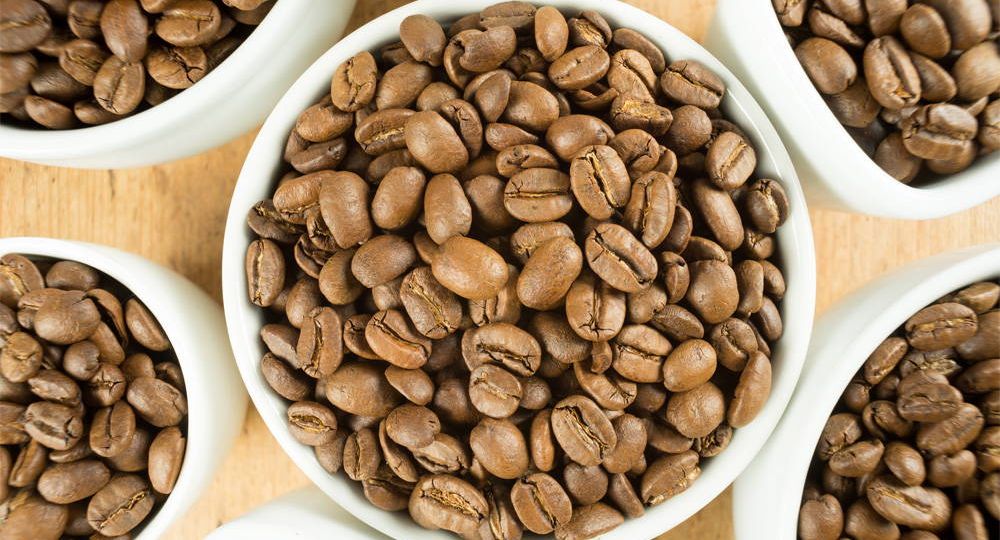
Coffee beans are a primary source of caffeine, a stimulant that boosts alertness and energy levels. Caffeine content varies between coffee bean types, with Robusta beans generally containing twice as much caffeine as Arabica beans. The method of consumption—eating coffee beans directly vs. drinking brewed coffee—also affects caffeine intake and its effects on the body.
Eating coffee beans provides a more concentrated form of caffeine compared to brewed coffee. While a single Arabica bean contains between 1.1 and 2.8 milligrams of caffeine, Robusta beans have roughly double this amount. This concentration means that consuming coffee beans can lead to quicker and more potent effects of caffeine.
The Science of Caffeine in Coffee Beans
Caffeine operates by blocking adenosine receptors in the brain, which normally signal fatigue, thus increasing alertness and reducing the perception of tiredness. The body absorbs caffeine from coffee beans more rapidly than from liquid coffee, leading to faster effects.
The caffeine content in coffee beans and brewed coffee differs significantly. While brewed coffee typically contains between 75 and 165 milligrams of caffeine per 8-ounce serving, eating coffee beans can provide a more direct and potent caffeine hit. However, this also means that it’s easier to consume too much caffeine when eating beans directly.
Coffee beans offer a rich source of caffeine whether consumed whole or brewed. However, the method of consumption impacts the caffeine’s effect on the body, with direct consumption of beans providing a quicker, more intense experience. Moderation is key, as the concentrated caffeine in coffee beans can lead to overconsumption and associated health risks.
Health Benefits of Eating Coffee Beans
Coffee beans are not only a source of caffeine but also contain a variety of antioxidants and nutrients that can contribute to overall health. These beans are rich in compounds such as chlorogenic acid, which has been linked to various health benefits including reduced inflammation and improved heart health. Additionally, coffee beans provide essential nutrients like magnesium and vitamin B2 (riboflavin), enhancing their nutritional profile.
The potential benefits of eating coffee beans extend to physical performance and mental alertness. Caffeine, a key component of coffee beans, is known to enhance physical endurance and improve concentration and mood. This makes consuming coffee beans particularly beneficial for athletes or individuals needing a mental boost.
Side Effects and Risks of Consuming Coffee Beans
However, consuming coffee beans is not without risks, especially when taken in excess. Common side effects include anxiety, restlessness, and various digestive issues such as heartburn and bloating. These effects are largely attributable to the concentrated form of caffeine and other compounds found in coffee beans, which can be more potent than drinking brewed coffee.
Overconsumption of caffeine from coffee beans can lead to more severe health issues. Symptoms of caffeine overdose include insomnia, increased heart rate, and in extreme cases, palpitations and tremors. The recommended daily limit of caffeine for most adults is up to 400 milligrams, equivalent to about four or five cups of brewed coffee, but much less in terms of whole coffee beans due to their concentrated nature.
To minimize risks, it’s crucial to consume coffee beans in moderation, taking into account their higher caffeine content compared to brewed coffee. Individuals with caffeine sensitivity or underlying health conditions should be particularly cautious and consult with a healthcare provider before incorporating coffee beans into their diet.
FAQs
How much caffeine is in coffee beans?
The caffeine content in coffee beans varies between types, with Robusta beans containing approximately twice as much caffeine as Arabica beans. On average, Arabica beans have between 1.1 and 2.8 milligrams of caffeine per gram, while Robusta beans can contain up to twice that amount. Roasting impacts caffeine levels minimally, so the difference between light and dark roasts is negligible in terms of caffeine.
Can eating coffee beans help you lose weight?
Chlorogenic acids, present in green coffee beans, have been associated with weight loss benefits, potentially aiding in glucose metabolism and reducing fat absorption. However, the roasting process reduces the amount of chlorogenic acids in the beans. Therefore, for weight management, green, unroasted coffee beans might be more beneficial than roasted ones.
Is it safe to eat coffee beans every day?
Eating coffee beans in moderation is generally safe for most adults, but due to their concentrated caffeine content, it’s important to monitor intake. The recommended limit of caffeine for healthy adults is up to 400 milligrams per day, equivalent to about four cups of brewed coffee. Since coffee beans are more concentrated, consuming them requires more caution to avoid exceeding this limit.
Do chocolate-covered coffee beans contain more caffeine?
Yes, chocolate-covered coffee beans contain more caffeine than plain coffee beans due to the additional caffeine found in chocolate. The exact amount varies depending on the type of chocolate and the size of the bean, but it’s important to account for this when considering total caffeine intake.
Conclusion
Eating coffee beans offers a unique way to consume caffeine, providing a concentrated dose along with antioxidants and nutrients. They can enhance mental alertness and physical performance, and may even contribute to weight management efforts when consumed in the form of green, unroasted beans.
However, due to their high caffeine content, it’s crucial to consume them in moderation to avoid potential side effects such as anxiety, digestive issues, and sleep disturbances. Individuals with caffeine sensitivity or specific health conditions should be particularly cautious. Incorporating coffee beans into a healthy lifestyle requires balance and mindfulness to maximize their benefits while minimizing risks.









